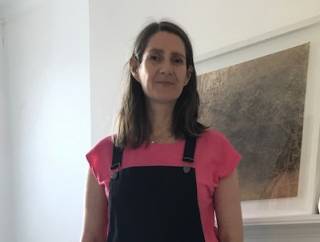Academic position: Professor of Architecture and Philosophy, and Programme Director MA Architectural History
Email: m.rawes@ucl.ac.uk
UCL website: https://www.ucl.ac.uk/bartlett/architecture/people/prof-peg-rawes
Biography:
My research focuses on social, architectural and material ecologies, or 'architectures of care'. Trained in art history and philosophy, my research and teaching focus on material, political, technological and ecological histories and theories of contemporary architecture and art.
Research Projects:
My edited anthologies publish architects alongside practitioners in the arts, environmental, human rights, social and medical research:
- Rawes, P., Mathews, T., & Loo, S. (eds) (2016). Poetic Biopolitics: Relational Practices in Architecture and the Arts. London: Bloomsbury Academic. ISBN-13:9781780769127
- Rawes, P. (ed.) (2013). Relational Architectural Ecologies: Architecture, Nature and Subjectivity (2013). Abingdon UK, New York US: Routledge. http://dx.doi.org/10.4324/9780203770283
- Rawes, P. (2013). ‘Architectural ecologies of care’, in Relational Architectural Ecologies: Architecture, Nature and Subjectivity. Abingdon UK, New York: Routledge. http://dx.doi.org/10.4324/9780203770283
More recently, my research has examined these intersections with respect to:
1. Predictions of life/nonlife: visual, philosophical and scientific histories and theories of human and non-human life, including, COVID-19:
- Rawes, P. (2020). 'Visualising uncertainty and vulnerability', Life in the Time of Coronavirus Podcast, no 11, IAS UCL, July, 2020: https://www.ucl.ac.uk/institute-of-advanced-studies/publications/2020/ju....
- Rawes, P. (2020). ‘Nonhuman architectural ecologies’ and ‘Interview with Peg Rawes’, Is There an Object-oriented Architecture? Graham Harman, Joseph Bedford (ed.), London: Bloomsbury Academic.
- Rawes, P. (2018). ‘Insecure predictions’, Structural Instability, E-flux Architecture, 24 July 2018. https://www.e-flux.com/architecture/structural-instability/208706/insecu...
2. Planetary poetics and imaginaries:
- Rawes, P. (2020). ‘Building Sexuate Architectures of Sustainability’, in G. Schwab (ed.), Thinking Life with Luce Irigaray, Albany: SUNY Press.
- Rawes, P. (2019). ‘Aesthetic geometries of life’, Textual Practice, 33:5, 787-802, DOI: 10.1080/0950236X.2019.1581685.
- Rawes, P. (2017). ‘Planetary Aesthetics’, in E. Wall, & T. Waterman (eds), Landscape and Agency. London: Routledge.
3. Housing ecologies: feminist and materialist architectural practices:
- Rawes, P. (2017). Housing biopolitics and care. In A. Radman, & H. Sohn (eds.), Critical and Clinical Cartographies: Embodiment, Technology, Care, Design. Edinburgh: Edinburgh University Press.
- Rawes, P. and Spencer, D. (2017). ‘Material and Rational Feminisms: A Contribution to Humane Architectures’, in H. Frichot, C. Gabrielsson, H. Runting (eds). Architecture and Feminisms: Ecologies, Economies, Technologies. London: Routledge.
- Rawes, P. (2015). ‘Spinoza’s Geometric and Ecological Ratios’, in M. Poole, & M. Shvartzberg (eds), The Politics of Parametricism: Digital Technologies in Architecture, London: Bloomsbury Academic.
Teaching
BARC0045 & 46 Materialist Ecological Architectures
This 30-credit and 15-credit Masters module examines the history and theory of materialist and ecological architectures from the early-modern period to the present day, with reference to architectural, philosophical, aesthetic and ecological sources. Beginning by examining 17thc matter, nature, biology and culture, the module progresses through: 18thc European aesthetics and empiricism; 19thc political, economic and scientific materialism; early 20thc biological materialism and vitalism. In part 2, the module explores post-war cybernetic, scientific and landscape practices from the 1950s-70s, and contemporary ecological history and theory from the 1970s to present day climate-change science and politics, including: feminist ecopolitics; decolonialism and transversality, and anthropocenic or posthuman ethics.
Relevant PhD Supervisions:
- Fiona Curran (2016), 'Towards a fractured topography of the present: art, ecology and the political economy of speed' (2nd supervisor)
- Tal Bar (2017) ‘Nomadic design: towards an affective and situated digital theory’
- Jeong Hye (2018), ‘Seoul’s Nanjido landfill-park and urban ecologies’
- Aisling O’Connell (current), ‘Reconstructing Reconstructions: A Stratigraphic Practice of Landscape and Historiography’ (2nd supervisor)
 Close
Close


